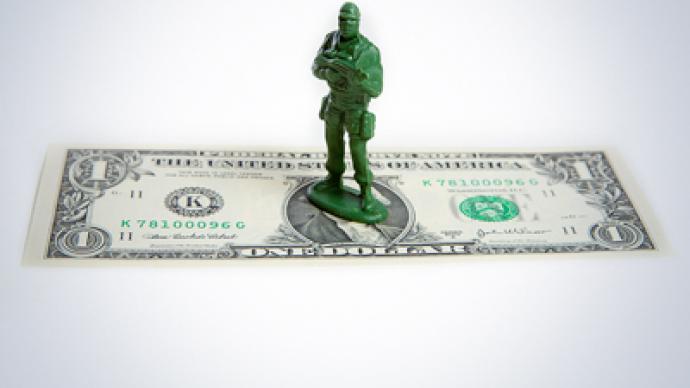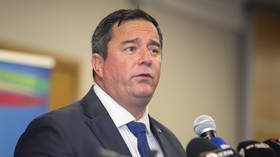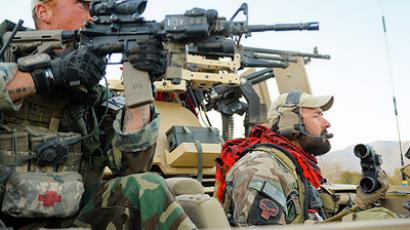Warfare state: Defense firms want to see US combat missions continue

The Pentagon says it is cutting its cloth over the next five years, but that is going to be hard when there is an entire industry relying on wars.
The US plans to spend 725 billion dollars on its military activity this year. It is the world's largest-ever defense budget and it comes amid a flagging economy and burgeoning national debts.When it comes to the Afghan war, well over half of Americans oppose it. And, after a year of record casualties and having ploughed in over $366 billion, why is the US committed to staying the course? “There are all kinds of motives for the war, including energy, profit, strategic,” says David Swanson, author of the book “War is a Lie”. Some in the US just might not want to see the war end. The top three American defense companies, such as Lockheed Martin, Northrop Grumman and Boeing, were handed tens of billions of US dollars in government contracts in 2008. As President Eisenhower once warned about the war industry, “we must guard against the acquisition of unwarranted influence whether sought or unsought by the military industrial complex."It has been 50 years since Eisenhower said those famous words, but in the decades since then, the US has seen defense spending skyrocket from $500 billion during the Vietnam War to about $600 billion during the Cold War, to more than $700 billion during the post-9/11 wars.Some argue the reason for that escalation has a lot to do with exactly what Eisenhower was warning about.There is a whole range of business that just lives off of fighting wars, believes William D. Hartung, director of the Arms Trade Resource Center.“I think it’s particularly the arms companies because they have representation in every state and district in the country, and in many cases they have Congress on their side, either to build the weapons or, if necessary, to use them.”Lawmakers cast the votes that ensure a military contractor, such as Lockheed Martin, gets $260 from each household a year, according to Hartung’s research, making it the single largest recipient of taxpayer dollars. Meanwhile, companies like Lockheed dole out millions in political contributions and for lobbying each year, and promise to deliver politicians not just weapons but jobs.“Sometimes they will even say: if you vote with us, we'll put a factory in your district,” says Hartung. Those who agree with Hartung say the defense dollars will keep coming for contractors as long as their influence continues, and the empire expands.It leaves one to wonder whether the US really wants to end the war or ever leave Afghanistan.As Swanson hints, Afghanistan is next to the Middle East, next to Russia, China. “It's a wonderful place to have bases, weapons and nuclear weapons. It’s a place where they very much want to put a natural gas pipeline,” says Swanson. And just looking at recent history, although President Obama has announced the end of the American combat mission in Iraq it does not really mean the end of the war, argues Michael Hudson, professor of economics at the University of Missouri.“The United States would like to end the Iraq war by keeping the military bases there, keeping 50,000 troops there, keeping enough control of the economy so that if the Iraqis do anything that the United States and its investors don't like we can immediately kill another 100,000 Iraqis," claims Hudson. While in Afghanistan the US is still spending billions trying to win the hearts and minds of the people, it looks to some like resources are going in a different direction.“You can drive along and for at least mile and half there’ll be a wall and there’s some kind of big American construction ammunition depo and housing happening on the other side of that wall. And on the other side of the road there are displaced people living in tents without heaters and blankets during the cold winter,” says Kathy Kelly, a peace activist. Afghans left out in the cold, while the US government and corporations appear to capitalize on a war that seems to be here to stay.














